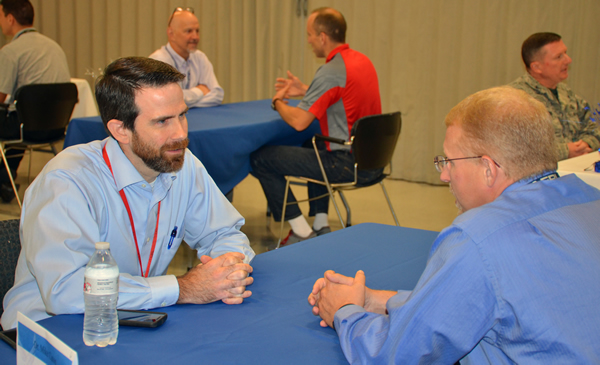 One of MFRI’s strategic goals is to engage in and promote learning, including the kind of learning that mentors and mentees can afford to one another. So it is natural for us want to highlight the benefits of engaging in meaningful mentoring opportunities whenever they are available
One of MFRI’s strategic goals is to engage in and promote learning, including the kind of learning that mentors and mentees can afford to one another. So it is natural for us want to highlight the benefits of engaging in meaningful mentoring opportunities whenever they are available
Students are a big part of what makes MFRI a thriving learning organization. MFRI is committed to furthering Purdue students’ education by involving them in meaningful opportunities during their time working for the organization.
But we also believe that we can learn from these bright young minds. In fact, we believe all of us have things to learn, just as all of us have things to teach, and we try to practice this belief every day. We wwweloped one of our newest initiatives, the Focus Forward Fellowship, to help connect women student veterans from across the country with the kinds of mentors who can make a difference in their lives.
Are you a mentor? Do you have one or more? Because January is National Mentoring Month, MFRI Director Shelley MacDermid Wadsworth shares below some important concepts about mentoring. Make 2017 the year you engage in a process that research shows has benefits to all!
What should you know about mentoring?
- Almost everyone can benefit from it.
- No one mentor will meet all needs; it is perfectly acceptable to have multiple mentors at once (Baugh & Scandura, 1999; Terry & Ghosh, 2015).
- No one is just a mentor or a mentee – we all have things we can learn from each other and teach to each other (Ghosh & Thomas, 2013). Networking mentoring can be very effective, rather than just top-down mentoring (Tsen, Borus, Nadelson, Seely, Haas & Fuhlbrigge, 2012).
- Mentoring relationships can be narrow or broad. Some mentoring relationships focus on very specific purposes or tasks; others provide more general support and guidance. In addition, "episodic mentoring" may occur spontaneously, occurring in everyday, short-term interactions (Buzzanell, 2009; Fletcher & Ragins, 2007).
- Mentors are advisors, coaches, or consultants, and there should be mutual agreement about what is "on" and "off" the table for discussion (Harrison, 2014).
- Don't sit back and wait for an invitation or an offer – reach out to seek mentoring or become a mentor. The worst that can happen is someone will say "no," but the best that can happen is a fulfilling and productive relationship (Harrison, 2014).
.ui-tooltip { max-width: 450px; text-align: left; font-family:Georgia, “Times New Roman”, Times, serif; font-size:small; padding-left: 36px; text-indent: -36px; }
